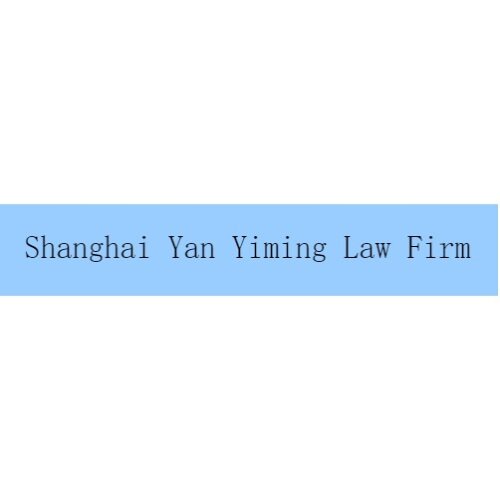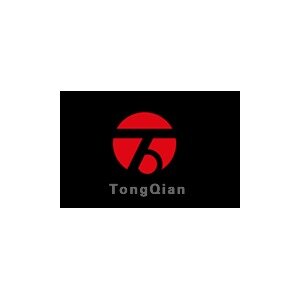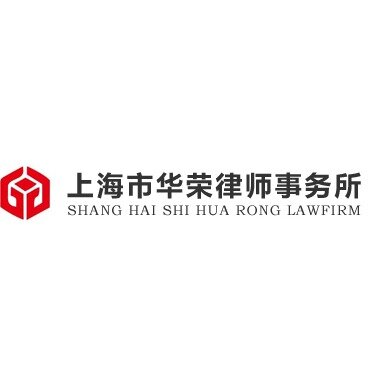Best Energy, Environment & ESG Lawyers in Shanghai
Share your needs with us, get contacted by law firms.
Free. Takes 2 min.
List of the best lawyers in Shanghai, China
About Energy, Environment & ESG Law in Shanghai, China
Energy, Environment and ESG (Environmental, Social, and Governance) law in Shanghai, China, is an evolving legal field focusing on sustainable business practices, environmental protection, and responsible energy management. As a leading global city, Shanghai faces intense scrutiny and requirements regarding energy usage, pollution control, green finance, carbon trading, and corporate social responsibility. Local and national authorities continue to introduce stricter rules and incentives to ensure that businesses contribute to a greener, more sustainable urban environment. Legal advisors in this field help clients comply with regulations, manage risks, and implement best practices for energy use and environmental protection, while meeting growing expectations for ESG disclosure and reporting.
Why You May Need a Lawyer
Individuals and businesses may seek legal advice in energy, environment and ESG scenarios for several important reasons. Common situations include:
- Starting a renewable energy project or investing in energy infrastructure
- Understanding compliance requirements for pollution control and emissions management
- Navigating environmental impact assessments for construction or development projects
- Responding to governmental enforcement actions or penalties for violating environmental laws
- Drafting and reviewing contracts related to energy purchase, supply, and technology transfer
- Preparing ESG reports or disclosures for public offerings or investor relations
- Engaging in carbon trading or managing carbon credits
- Advising on green finance opportunities or incentives
- Handling disputes involving environmental damage or regulatory breaches
- Acquiring, transferring, or restructuring assets subject to energy or environmental regulations
Lawyers provide valuable assistance in translating complex legal requirements into practical steps, minimizing risks and liabilities, and advocating for clients in dealings with government agencies or courts.
Local Laws Overview
Shanghai is governed primarily by national Chinese laws and policies related to energy use, environmental protection, and ESG, but it also enforces city-specific regulations and pilot initiatives. Some key aspects include:
- Environmental Protection Law of the People’s Republic of China: Sets the overall standards for pollution prevention, environmental monitoring, and public disclosure.
- Law on Prevention and Control of Atmospheric Pollution: Targets reduction of air pollution and enforcement of stricter emission standards, relevant for factories, vehicles, and construction.
- Renewable Energy Law: Encourages the use of solar, wind, and other renewable energy sources with support for project development and grid connections.
- Regulations on Environmental Impact Assessment (EIA): Any significant construction or industrial project in Shanghai must undergo a thorough EIA process before approval.
- Shanghai Local Regulations: The city has codes and guidelines for energy conservation, green building, water resources management, and hazardous waste oversight.
- Carbon Emissions Trading: Shanghai is a pilot market for carbon trading in China, and companies may be required to monitor, report, and offset their carbon emissions via emission rights trading schemes.
- ESG Disclosure: Public companies, especially those listed on the Shanghai Stock Exchange, face growing requirements for ESG reporting, risk management, and transparency in operations.
The interplay between national law and Shanghai-specific rules means that compliance and enforcement can be complicated for newcomers, making local legal guidance especially valuable.
Frequently Asked Questions
What are the main environmental laws that apply to businesses in Shanghai?
Businesses must comply with both national laws, including the Environmental Protection Law and various pollution control laws, as well as local Shanghai regulations specific to energy conservation, waste management, and emissions.
Is an Environmental Impact Assessment (EIA) required for my project?
If your project involves construction, manufacturing, or any activity likely to impact the environment, you will likely need an EIA before obtaining permits to start operations in Shanghai.
What is carbon trading and do I need to participate?
Carbon trading allows companies to buy and sell emission allowances. Certain Shanghai businesses over a set threshold must participate in the carbon trading pilot market to manage their carbon footprint and comply with regulations.
Are there government incentives for renewable energy projects in Shanghai?
Yes, both national and local governments offer financial incentives, tax breaks, and policy support for solar, wind, and other renewable energy projects to promote sustainable development.
What are the risks of non-compliance with energy and environmental law?
Penalties may include fines, fees, forced cessation of operations, loss of licenses, and reputational harm. In some cases, responsible individuals may face civil or even criminal liability.
How does ESG reporting work for companies in Shanghai?
Public listed companies face mandatory or voluntary ESG reporting requirements which include disclosing information about environmental impacts, resource usage, labor practices, governance and anti-corruption measures.
Can foreign investors participate in clean energy projects in Shanghai?
Yes, although restrictions and regulatory approvals may apply, foreign parties can establish joint ventures or wholly-owned enterprises in most clean energy sectors, provided compliance with local laws and industrial policies.
How can I resolve a dispute over environmental damage in Shanghai?
Disputes can be resolved through negotiation, mediation, administrative remedies, or litigation in Chinese courts. Legal counsel can help determine the best approach based on the circumstances.
What permits are needed for hazardous waste handling?
Companies managing hazardous waste in Shanghai require special permits, regular reporting, and compliance with strict transportation, treatment, and disposal standards.
How can a lawyer help with ESG compliance?
A lawyer can ensure your company meets regulatory requirements, drafts necessary policies and disclosures, and advises on best practices to enhance ESG performance and reduce legal risk.
Additional Resources
You may find the following resources helpful for further information or support:
- Shanghai Ecological Environment Bureau: Oversees environmental protection policies and enforcement in Shanghai.
- Shanghai Municipal Development and Reform Commission: Handles energy planning, carbon trading, and green development initiatives.
- Ministry of Ecology and Environment of the People’s Republic of China: Sets national policy for environment-related laws and compliance.
- China Securities Regulatory Commission: Issues ESG guidance and disclosure requirements for listed companies.
- Shanghai Energy Conservation Supervision Center: Supports energy-saving and clean technology initiatives.
- Local law firms and bar associations specializing in energy, environment, and ESG law.
Next Steps
If you need legal assistance related to energy, environment, or ESG matters in Shanghai, consider the following steps:
- Identify your specific legal issue or compliance need.
- Gather relevant documents, permits, and communications associated with your project or inquiry.
- Contact a qualified lawyer or legal firm experienced in local and national laws governing energy, environment, or ESG matters.
- Consult with the lawyer regarding your obligations, risks, and available solutions.
- Follow their guidance on regulatory filings, dispute resolution, contract structuring, or policy making as required.
- Keep updated with changes in local laws and industry standards, as this field is regularly evolving in Shanghai.
Taking early action with professional legal support can help you avoid costly mistakes, ensure compliance, and contribute to a more sustainable future in Shanghai.
Lawzana helps you find the best lawyers and law firms in Shanghai through a curated and pre-screened list of qualified legal professionals. Our platform offers rankings and detailed profiles of attorneys and law firms, allowing you to compare based on practice areas, including Energy, Environment & ESG, experience, and client feedback.
Each profile includes a description of the firm's areas of practice, client reviews, team members and partners, year of establishment, spoken languages, office locations, contact information, social media presence, and any published articles or resources. Most firms on our platform speak English and are experienced in both local and international legal matters.
Get a quote from top-rated law firms in Shanghai, China — quickly, securely, and without unnecessary hassle.
Disclaimer:
The information provided on this page is for general informational purposes only and does not constitute legal advice. While we strive to ensure the accuracy and relevance of the content, legal information may change over time, and interpretations of the law can vary. You should always consult with a qualified legal professional for advice specific to your situation.
We disclaim all liability for actions taken or not taken based on the content of this page. If you believe any information is incorrect or outdated, please contact us, and we will review and update it where appropriate.
Browse energy, environment & esg law firms by service in Shanghai, China
Shanghai, China Attorneys in related practice areas.

















